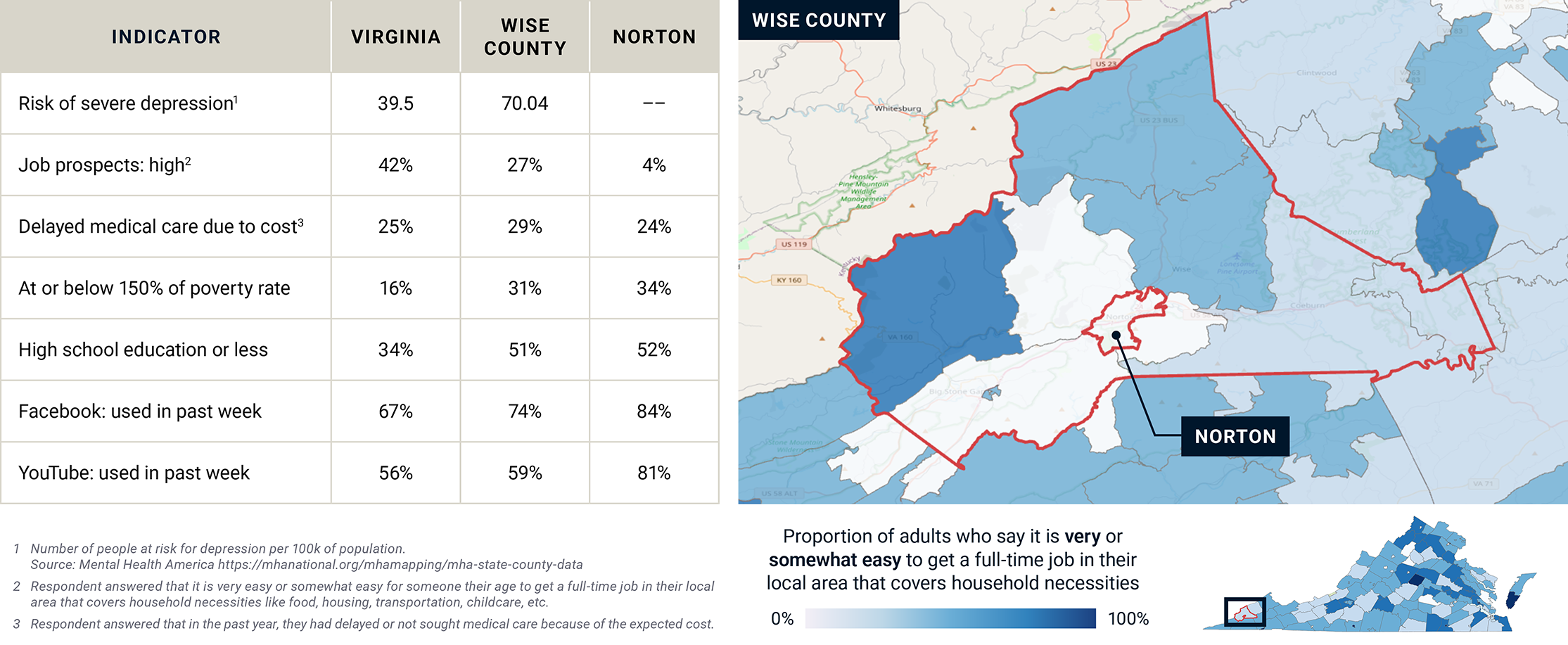Measles on the Rise: How Fraym’s Localized Insights Can Safeguard Texas’s South Plains


Across the U.S., 60 million adults experience mental illness, with record highs in suicidal ideation and unprecedented rates of persistent sadness among adolescents. These alarming statistics point to a national mental health crisis that demands smarter, more targeted interventions. Fraym is uniquely equipped to meet this moment, leveraging high-resolution, geospatial data to help public health officials identify population-level drivers of mental illness and deliver tailored mental health solutions at scale.
In Wise County, Virginia—a rural Appalachian region facing overlapping challenges of economic hardship, opioid addiction, and natural disaster recovery—Fraym’s data can help local leaders craft more effective, locally-informed responses. By layering behavioral, economic, and digital engagement indicators, Fraym uncovered that only 27% of adults in the region—and just 4% in Norton—believe they can find a full-time job that meets their needs. Such insights help clarify the structural roots of depression, enabling interventions that go beyond clinical treatment to address broader well-being.
Traditional systems often lack the granularity needed to tailor interventions to hyperlocal realities. Nationally, over half of adults with mental illness go untreated. In high-risk, underserved communities like Wise County, that figure can be even higher, due to stigma, infrastructure gaps, or simply not knowing where to start. Fraym closes that gap. Our platform can identify which neighborhoods face the most acute need, what barriers residents face, and what digital channels—such as Facebook and YouTube—they actively use, creating opportunities for precise, culturally relevant engagement.

The stakes are especially high in places like Wise County, where the co-occurrence of opioid use and mental illness is staggering. Between 2006 and 2012, Norton led all rural towns in per capita opioid pill distribution. Now, following the devastation of Hurricane Helene in 2024, which triggered a federal disaster declaration, the mental health risk is even more pronounced. In this context, Fraym’s ability to translate community-level data into actionable strategy is not just valuable—it’s essential.